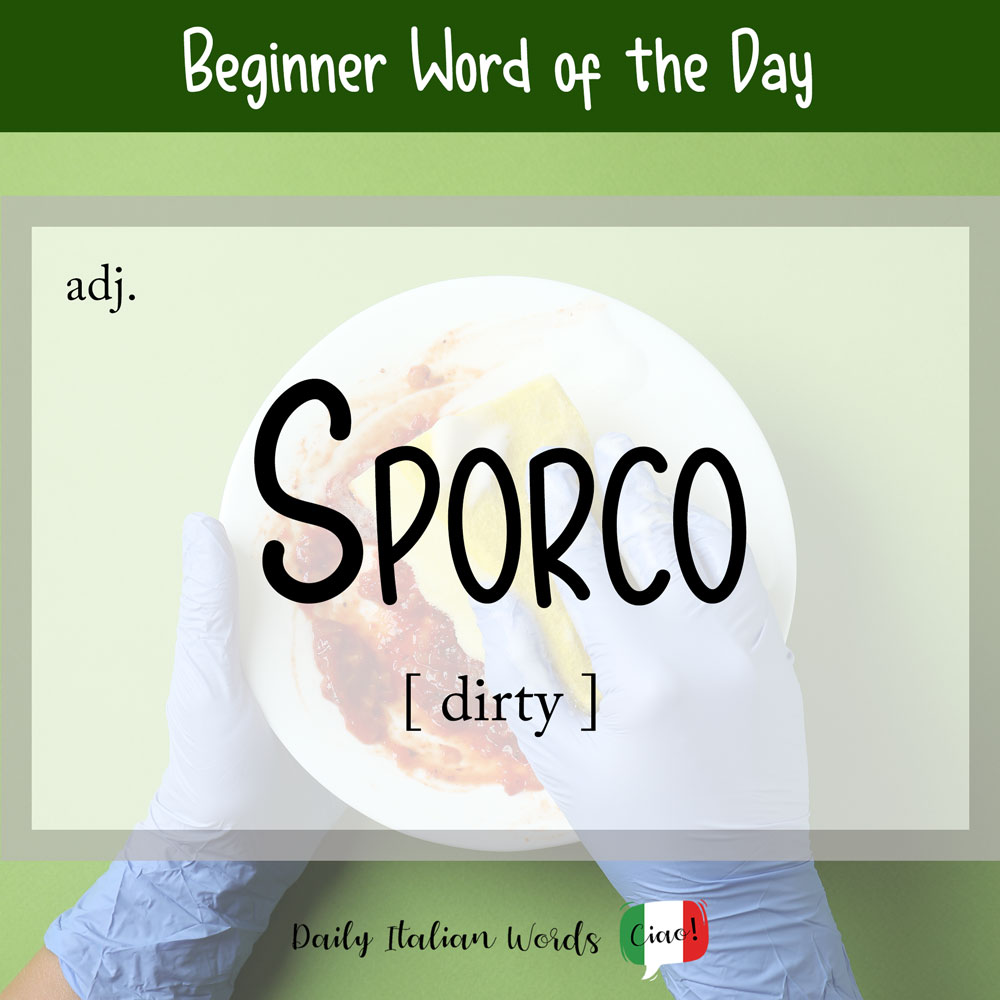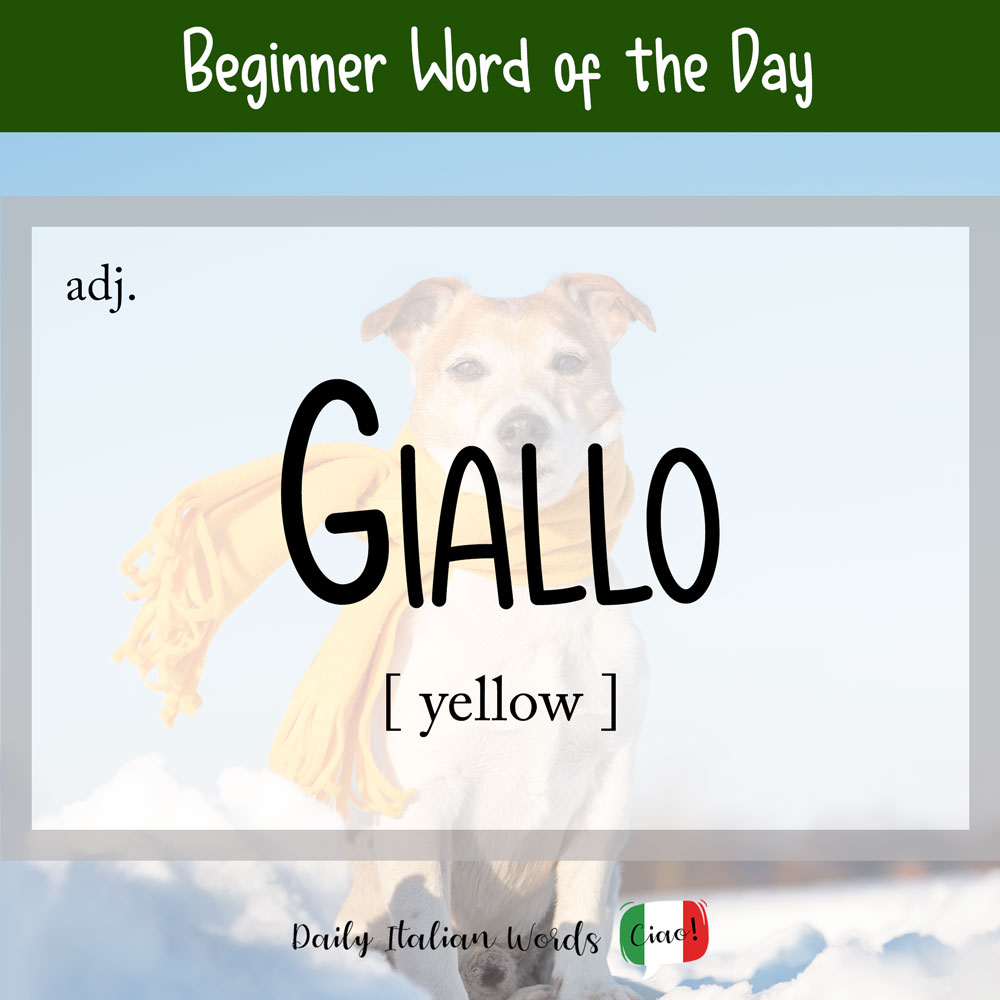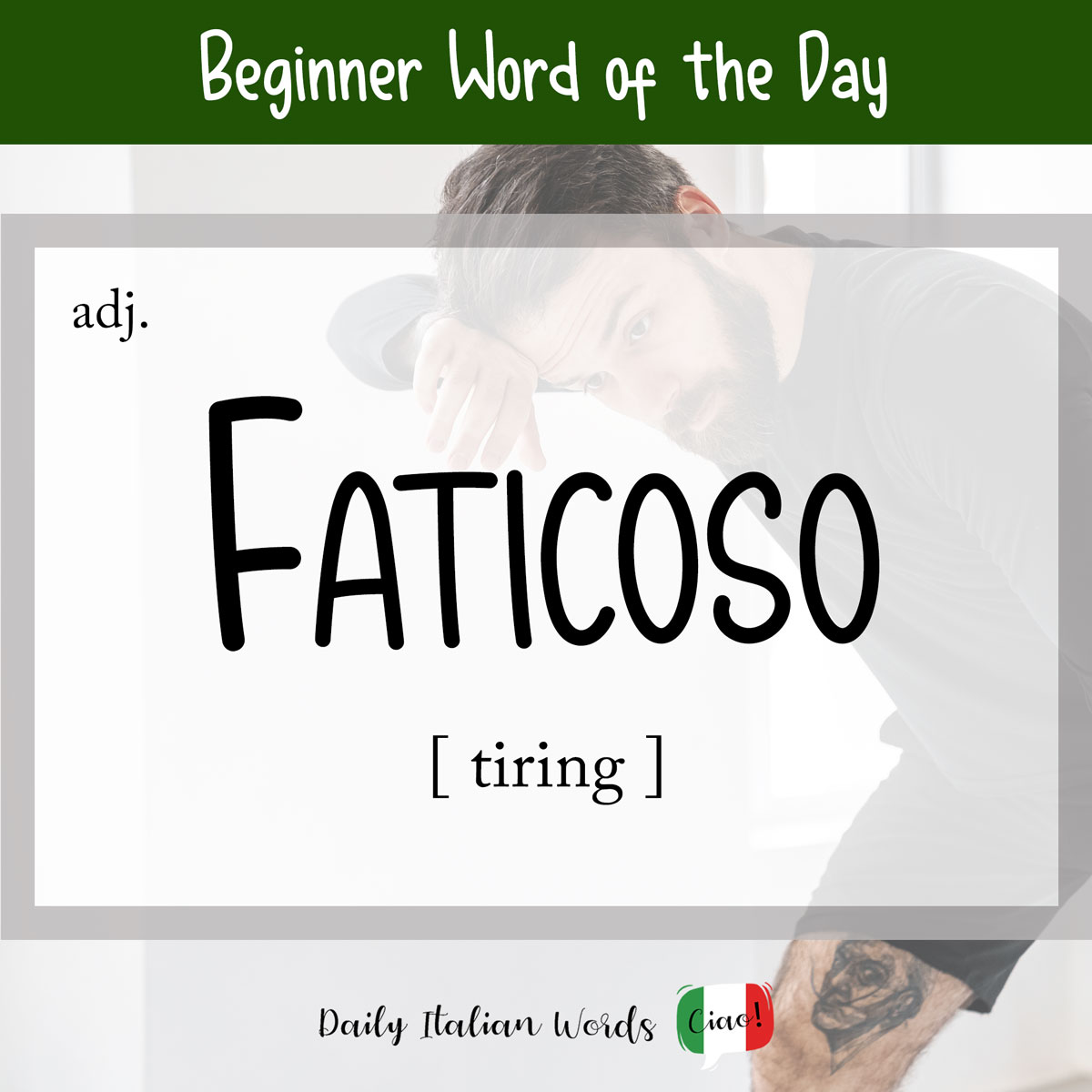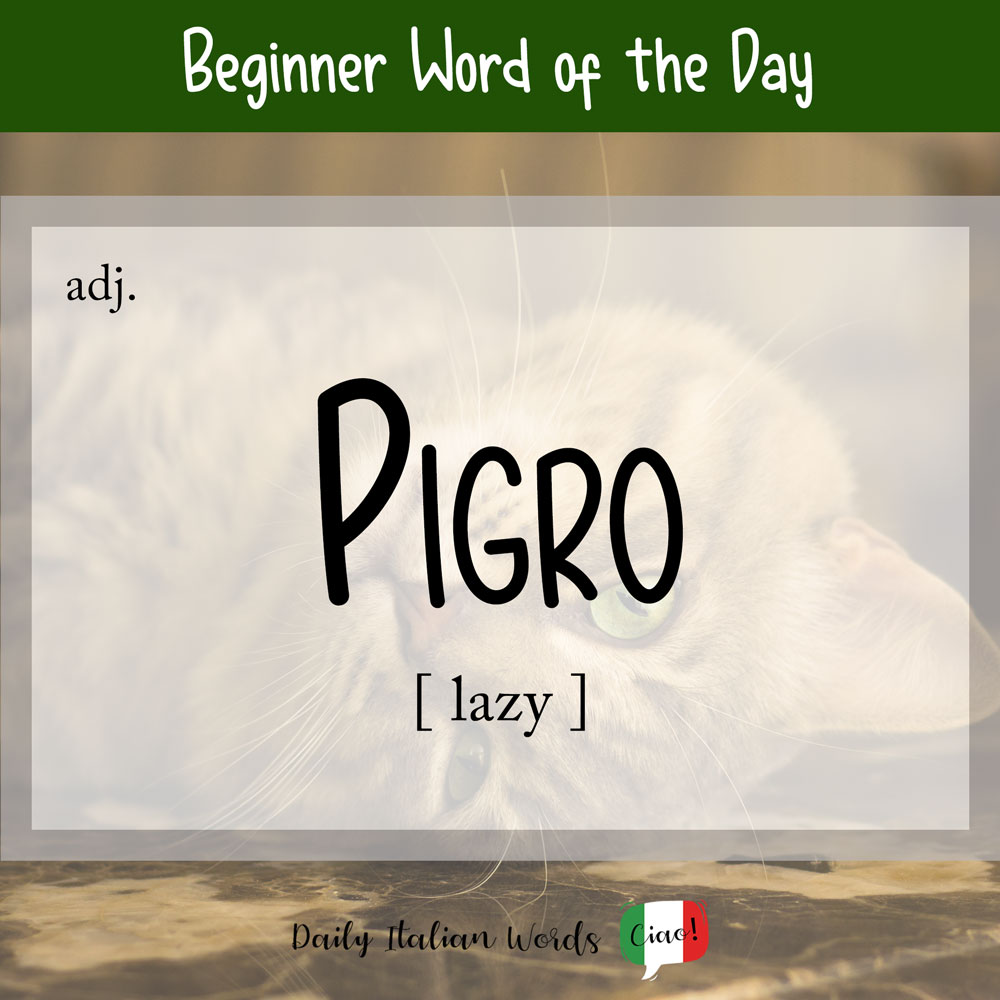Italian Word of the Day: Sporco (dirty)
If you have young children or a pet that likes to roll around in the mud, one word you simply cannot do without is sporco, the Italian word for dirty. As with many adjectives, the ending changes depending on whether the subject is masculine, feminine or plural. Devo pulire la stanza perché è molto sporca. …






